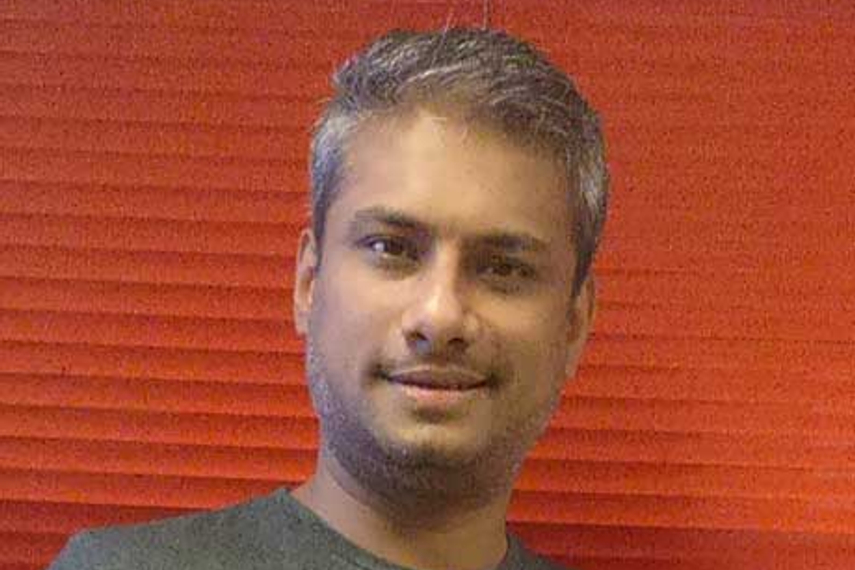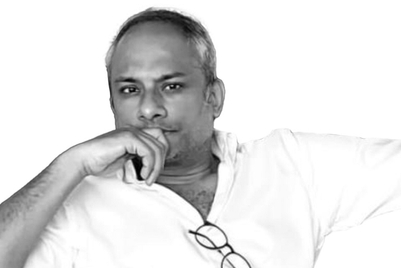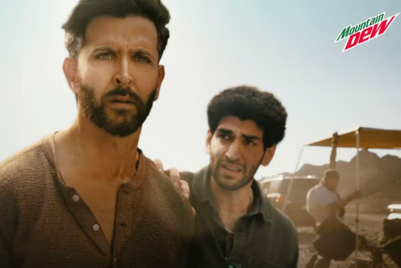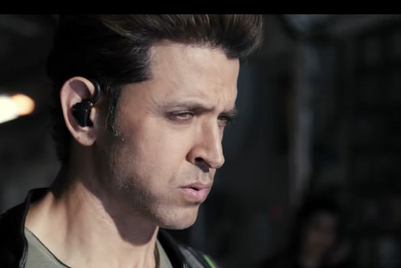Surjo Dutt began his journey in advertising with JWT when he dropped out of college in 1998. After a three-month stint, he was taken on board as a trainee copywriter. Today, he holds the position of VP and ECD, at JWT Delhi. In the course of his career, he has had the opportunity to work on brands such as PepsiCo, Nokia and Airtel.
Sitting in a printed Hulk T-shirt at JWT’s office in Gurgaon, Dutt comes across as curious yet lazy, easy-going yet professional. With no mentor, Dutt learned on the job from people across the agency be they from creative or servicing. Reminiscing about his initial days at the agency, he says, “I grew up very happy and confident. I started with the Pepsi account, but people would pull me in for other stuff as well. I would write something for ESPN Star Sports, or Hero. The beautiful part of JWT is that it is huge with brands across all categories. You can try your hand across brands and I did that. It was just great and continues to be.”
That, for him, was the deciding factor in sticking with the agency - the number of opportunities that he got across brands. Describing himself as a ‘freak’ who is still in his first job, he rationalises his decision to stay on for over 15 years: “I feel the business of advertising is the same across agencies, and so is client-agency relationship. All places (agencies) go through their ups and downs but the great part about JWT is that its heart is in the right place.” And how would be describe his contribution to the agency? A modest ‘fairly decent’.
From ‘Cheetah bhi Peeta hai’ to ‘Oh Yes Abhi’
The creative currently works on Nokia, Airtel and Pepsi accounts. He points out that the amount of business entrusted to him and his team is ‘pretty much the size of a mid-sized agency’. Unperturbed by the ‘good, bad, and ugly’ body of creative work, Dutt reflects that you may get some right and go wrong with others. He further notes, ‘I like ideas more than particular commercials’.
One such idea that he got right was ‘Cheetah bhi peeta hai’ for Mountain Dew in 2003. The line stuck, as did ‘Darr ke aage jeet hai’. So did a campaign for the latter featuring four people on a raft ready to face the rapids. Having been associated with the brand since its launch, Dutt points out that the two ads still feature in client’s research as the most successful.
Around 14 years ago, when Dutt was a young copywriter, Pepsi opened its first internet space called Pepsi Zone. “I had done two small commercials for Pepsi Zone featuring jaats talking in cool English lingo sitting around a fire because they have been to Pepsi Zone. It became insanely popular. After that, I have seen many brands talking up this idea of hardcore rural people talking in English. It was new and fresh approach.” The ‘fresh’ approach led senior people in JWT making queries about the young professional.
“For Mirinda, I wrote ‘Pagalpanti bhi zaroori hai’. The idea continues after me and my agency has stopped working on the brand. The brand, however, continues to work on this idea. This is an idea that has endured for a long time now,” he adds.
Dutt’s 'Phir dil do hockey ko' campaign for Hero Honda connected with people too. “So many people came to me and said, 'That is just the right thing to say and we must love hockey again’. We used Priyanka Chopra, Rajyavardhan Singh Rathore, Virender Sehwag.” Dutt wrote a song, like an anthem, which used to play in stadia. “I had gone for a game and saw people tapping their feet and clapping as the song played on speakers. It was a great feeling,” says its creator.
One of his recent campaigns 'Oh Yes Abhi' featuring the under-19 cricketer Unmukt Chand won him accolades as well. He gladly talks about how people told him that the audacious lines spoken by Chand were true to what Pepsi stands for, and that the ad managed to touch a pulse that is true and relevant for young people. Dutt has worked a total of 13 years across two innings on Pepsi - a brand he has ‘had most magical experiences with’.
Explaining the ‘magic’, he says, “Historically, in India, people have loved and liked Pepsi's advertising but they have also been ruthless when they haven’t liked it. So the magic of it when you get it right, is that you hear it from all corners. You work with celebrities, film stars, cricketers - that's one part of it. The other is that there is a big world of digital that has opened up - what you can do there with Pepsi.” Given that lot of youth brands are vying for the same heart and mind space just like Pepsi, it does pose a challenge - but that is what makes it an exciting brand, maintains the ECD.
“Not every brand, I feel, is challenging and full of experiences day after day. In the world of Pepsi, the first thing you have to do is to entertain. If you cannot entertain, and your message does not go through the category, people are very harsh. It is hard but rewarding,” he says.
The magic of creative process
Unfazed by clients’ demanding deadlines, Dutt enjoys creating communication and writing advertising apart from drawing pleasure from directing as well. He adds, “There is always pressure from clients. What one can do is more good than bad, more hits than misses, more success than failure. That is what I believe a creative leader can yearn for - you please more clients than you displease. And you try to please more people in your team than displease because it is a hard business.”
From the campaigns that do not get desired results, or ‘displeases’ clients, Dutt tries to learn and move on rather than ruminate on them. “I enjoy the creative process, and not worry about hits and misses,” he maintains. He does not draw inspiration from advertising books, lectures, or presentations, but from human behaviour that he loves to observe.
Talking about creating an impact on consumers, Dutt says, “There are so many channels of advertising now. What the consumer expects from advertising has changed. Earlier, they were easier to please. Now, they are harder to please as they are much more informed, they get stimulus from all sorts of media. With millions of voices talking to consumer, how you get your voice heard is a challenge. The creative process remains the same - it has always been a torturous process, and will always remain hard whether you create a TV commercial or a radio spot or content for digital or a print ad.”
Awards: 0, Advertising: 15, and going strong
Despite creating campaigns that has won him accolades, and helped the brands, Dutt has never won an award. He hasn’t even entered any award show. Dutt says, “It's not something that interests me. This whole business of creating advertising, which is only created for awards - we all know that it gets done in every agency, and there is nothing wrong in it. People who like to do it, all power to them. There are people in my agency who are awards-driven, awards-focussed. That’s great. They create a positive atmosphere in the agency. They give great confidence to people who win awards. It raises the profile of the agency. It makes people think that the agency has creative muscle. However, personally, it does not mean anything to me. It is not my game. I have never played it, and never really missed it.” However, he does say that he might just go for it, if and when he wishes to.
Dutt is not vocal about his work either. He rationalises, “I prefer to stay away from the limelight. I think there is great satisfaction to say that there is so much good work that I do not even remember it. It is so nice to be able to hear people talk about your work, to hear people have opinions and debates about your work, rather than you sitting and talking about your work.”
Still enjoying the whole process, he says that at 37, the advertising world still holds a lot of charm for him. However, he is ready to hang up his boots eight to 10 years from now. Isn’t that too early? He responds, “I am pretty sure that I will lose interest. More importantly, I believe creative people have an expiry date. In the world of commercial art, there is lot of pressure. We work within certain given boundaries, unlike a poet or a painter. These boundaries create a pressure, and it leads to creative erosion. Now how many years it takes to reach your expiry date, depends on creative person to creative person. I am not more than eight to 10 years away, and I am being very optimistic here. There will come a point, and I hope that it comes with great clarity when I will know from within that I am not contributing and I am here just because seniority and experience. For a creative person to exist, you have to keep creating, you have to think of ideas, think of approaches, think of styles of communication and offer creative solutions to bigger picture problems that clients may have. That kind of creativity dries up and mine will to. And when it does, I will leave.”
He wishes to have authored a book by then. Depending on its success will be his next career move. But it will ‘definitely not be advertising’, says the man who is - surely - still in love with advertising.
(Published in the issue of Campaign India dated 8 August 2014.)






_20220919043043.png&h=268&w=401&q=100&v=20250320&c=1)

.jpeg&h=268&w=401&q=100&v=20250320&c=1)
.png&h=268&w=401&q=100&v=20250320&c=1)
.png&h=268&w=401&q=100&v=20250320&c=1)

